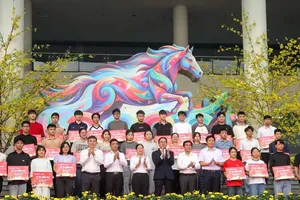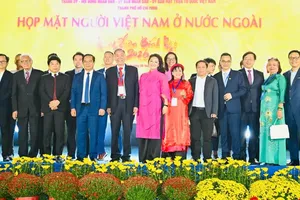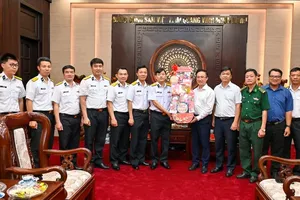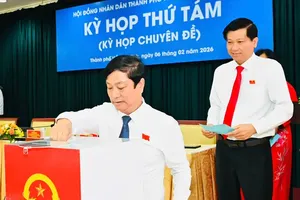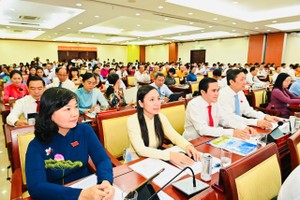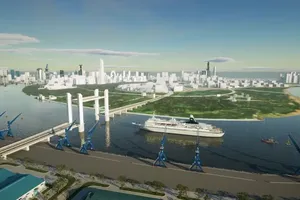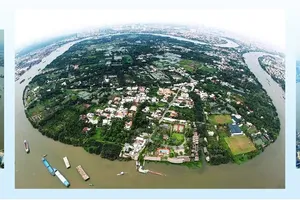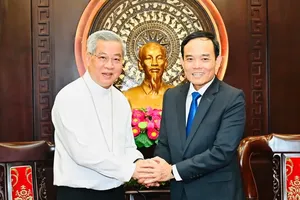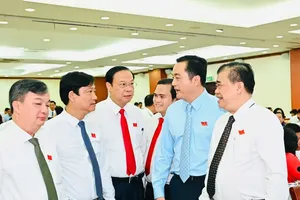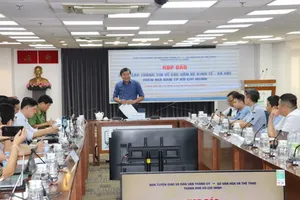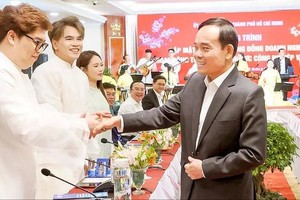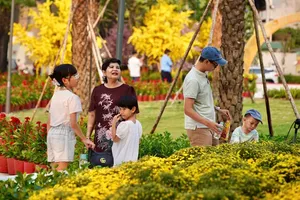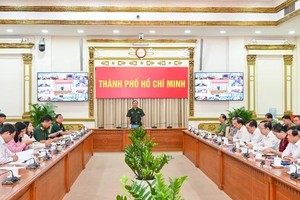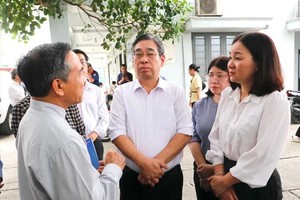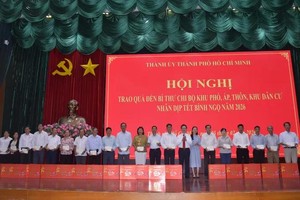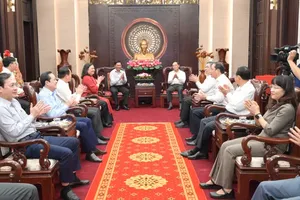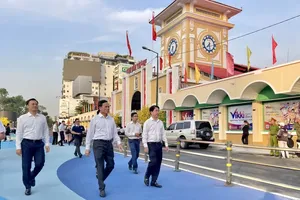The session was chaired by Mr.Nguyen Van Duoc, Member of the Party Central Committee, Deputy Secretary of the Ho Chi Minh City Party Committee and Chairman of the municipal People’s Committee.
The working session focused on key issues such as the disbursement of public investment funds and the functioning of the city’s two-tier local government system.
Accelerating public investment disbursement
During the working session, Chairman of the municipal People’s Committee Nguyen Van Duoc highlighted that Ho Chi Minh City recorded several economic and social achievements in August and the first eight months of 2025.
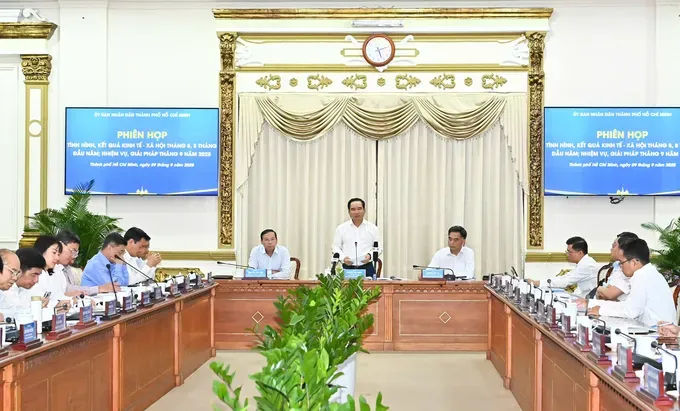
State budget revenue exceeded VND524 trillion (US$19.8 billion), up 15.5 percent compared to the same period in 2024, while foreign direct investment (FDI) attracted more than US$6.8 billion, an increase of 58 percent over the previous year.
Despite these positive indicators, the disbursement of public investment capital remains limited, rising less than 1 percent over the past two months.
HCMC Chairman Nguyen Van Duoc noted that this slow pace reflects unsustainable and inadequate disbursement, affecting economic growth.
Key bottlenecks include delays in land clearance for major projects.
The chairman pointed to a shortage of commune-level personnel, unclear interdepartmental coordination mechanisms between departments and local authorities, and a lack of flexibility in addressing public investment issues across sectors and administrative levels.
He urged department heads and local authorities to face the facts, identify the root causes, particularly internal factors and implement corrective measures. Leaders must demonstrate accountability and a willingness to act decisively for the public's benefit.
Leaders of departments, agencies and commune-level People’s Committees are urged to pay special attention to land clearance for projects and to propose key public investment projects for 2026 and the period through 2030. These measures aim to accelerate public investment disbursement and boost the city’s GRDP growth.
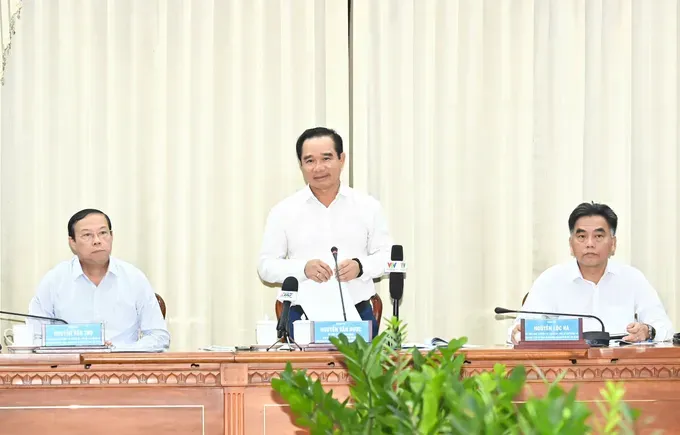
During the meeting, officials from departments, agencies and project management boards analyzed the underlying causes of delays and pledged to coordinate efforts to speed up investment disbursement, setting clear timelines and prioritizing specific groups of projects.
Presiding over the session, Standing Vice Chairman of the Ho Chi Minh City People’s Committee Nguyen Van Tho analyzed that the recent slow disbursement of public investment funds has been largely due to internal factors. He emphasized that project owners must focus on overcoming these obstacles and accelerating progress.
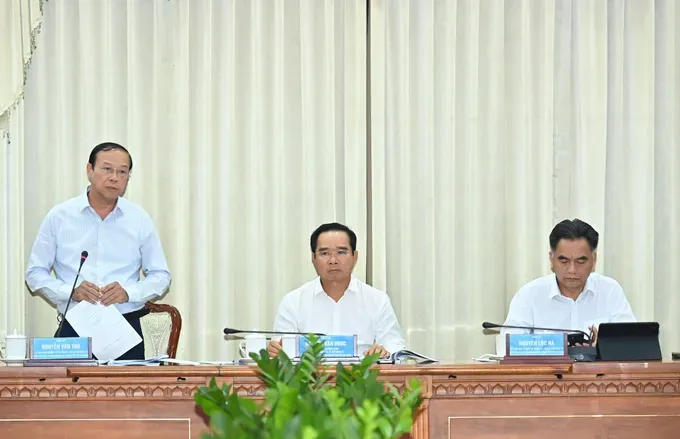
Projects are categorized into several groups for targeted action, including those ready for investment, those requiring land clearance and compensation, newly launched projects, ongoing projects and those in the process of payment and settlement. Each group must prepare the necessary documentation and follow procedures to ensure timely disbursement.
Increasing the assignment of seconded staff to local authorities
HCMC People’s Committee Chairman has called for the persistent improvement and stabilization of the administrative apparatus, with particular emphasis on training, professional development, and strengthening the commune-level workforce.
He also stressed the need for systematic investment in 38 local service units that receive administrative documents regardless of jurisdiction, including investment in end-user equipment, network infrastructure and related technologies.
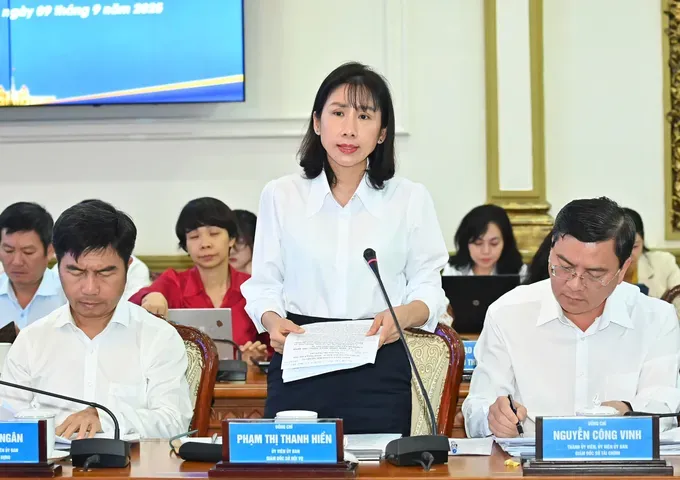
On this matter, Director of the Ho Chi Minh City Department of Internal Affairs Pham Thi Thanh Hien stated that the department has surveyed and consulted with wards, communes and the special zone to identify positions lacking specialized staff, thereby compiling and submitting to the Standing Board of the HCMC People’s Committee, which will direct relevant departments and agencies to immediately assign personnel to these positions to ensure efficient service for residents and businesses.
In addition, the municipal Department of Internal Affairs, in coordination with the Ho Chi Minh City Department of Construction, has established 19 local units covering 168 wards, communes and special zones to manage urban and construction order.
Nearly 900 seconded staff from the Construction Department’s former local inspection teams have been working with these units to support their operations.
The department has also consulted the Ministry of Internal Affairs on creating job positions, proposing that these roles be incorporated into the economic–urban infrastructure divisions of wards, communes and special zones, as well as strengthening land management and construction order personnel at the commune level.
Regarding the 38 local units handling administrative procedures that are not tied to specific administrative boundaries, the Ho Chi Minh City Department of Internal Affairs Director Pham Thi Thanh Hien stated that staff seconded from various departments and agencies, along with local personnel, have been fully assigned to manage and process procedures for residents.
Departments and agencies are currently focusing on investing in equipment and network infrastructure to provide increasingly efficient services for citizens and businesses.
Key socio-economic results for the first eight months of 2025
Ho Chi Minh City’s total retail sales of goods and consumer services reached an estimated VND166,243 billion (US$6.3 billion), marking an increase of 15.8 percent compared to the same period in 2024. Tourism revenue is estimated at VND161,887 billion (US$6.1 billion), up 31.2 percent year-on-year.
The city’s overall industrial production index (IIP) rose by six percent. Foreign direct investment (FDI) inflows totaled nearly US$6.89 billion, a 58-percent increase compared to the same period last year. Total state budget revenue collected in the city exceeded VND524,000 billion (US$19.8 billion), up 15.5 percent year-on-year.
